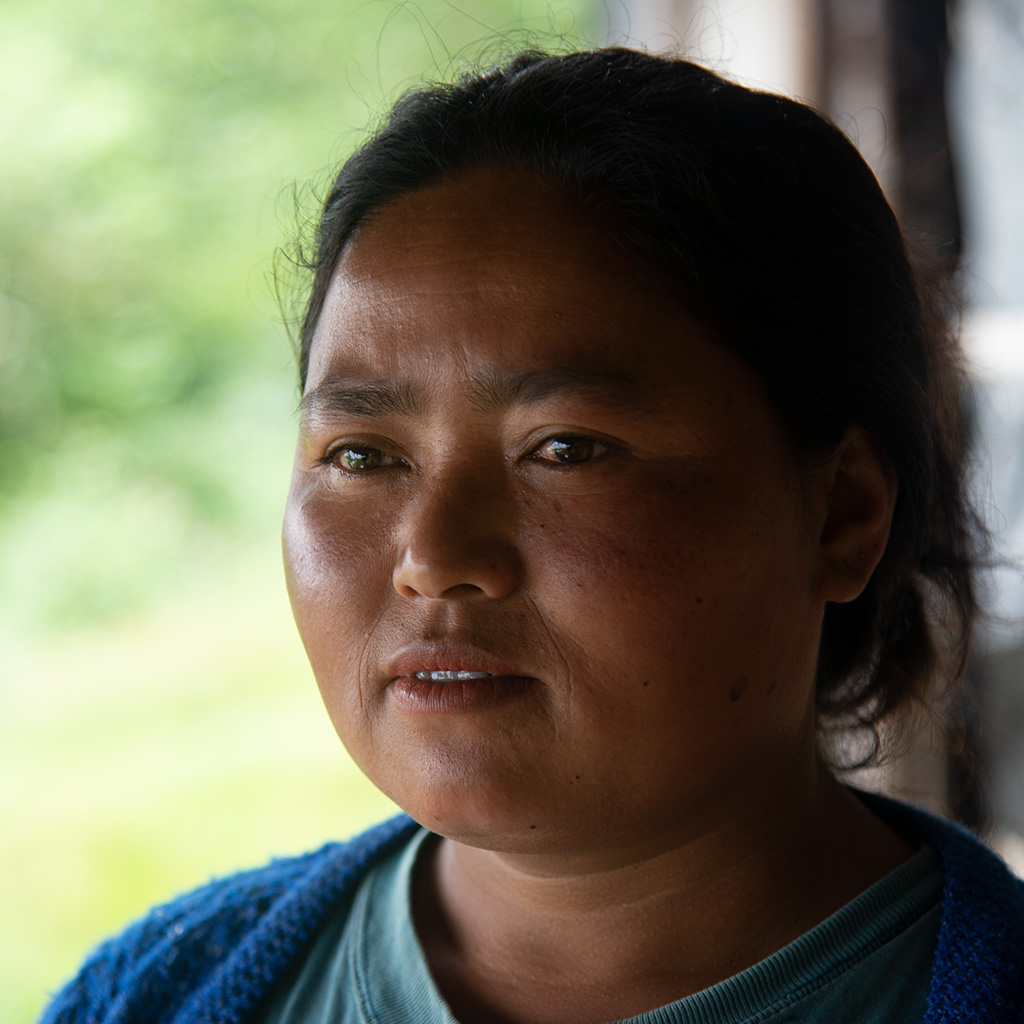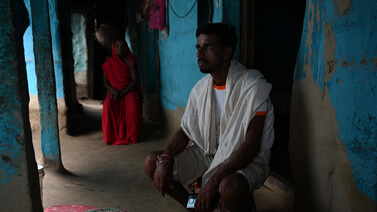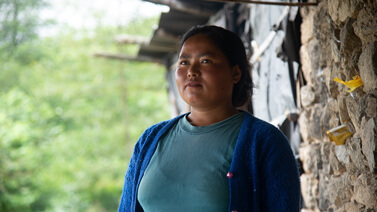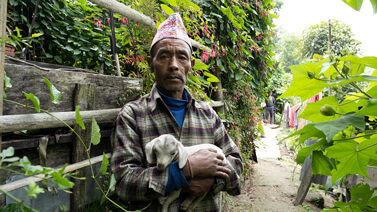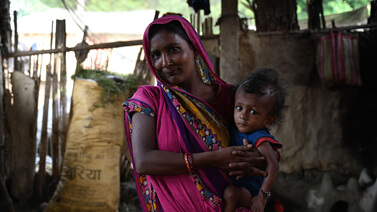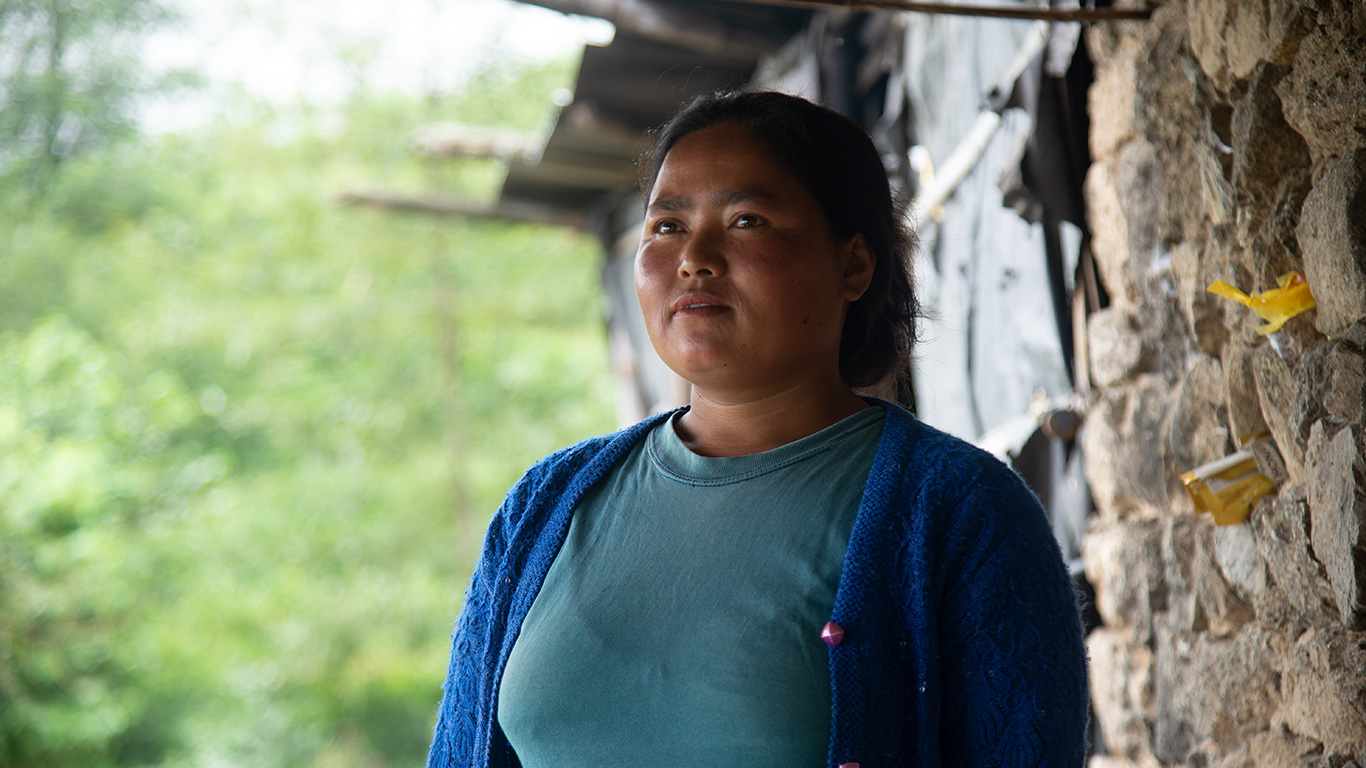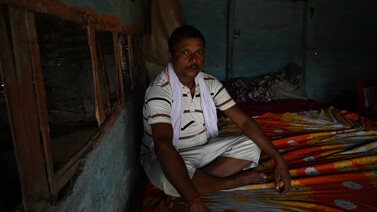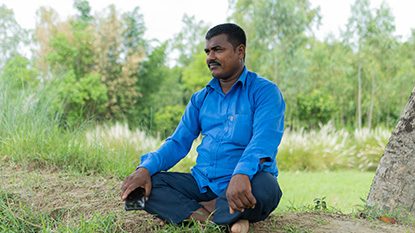Mother was Father's second wife. She was a Tamang while my stepmother was a Magar. My mother had to endure caste discrimination in our house. She would be told how she had ruined the purity of the Magar gods by coming into a Magar household. I remember my uncle screaming at her, accusing her of angering the Magar deities. It would hurt my young heart to witness my mother’s helplessness and the family’s behaviour towards her.
I was 17 years old when I got married and came to this place. Although my parents lived nearby, it was difficult to see my mother every day. That would worry me. At least she had me in times of distress, but when I was no longer living with her, she had no one to cry with. In 2005, she got sick. Since both my brothers had left the country in search of work, I made sure I visited her and tended to her needs. I tried all I could. I took her to the hospital and even to traditional healers in the hope of a miracle. But my prayers went unheard. When I was 20, three years after I left home, she passed away.
There are a few things that I regret in my life. I feel like I could have taken better care of my mother. Then maybe she would have been alive today. I also feel that if I had the opportunity to continue with my schooling, I would have been leading a different life.
Those are things of the past. After I got married, I lost my first son when he was six months old. I had lost my mother and now my first child. The trauma was too great and the grief too painful.
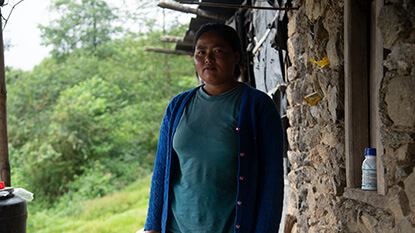
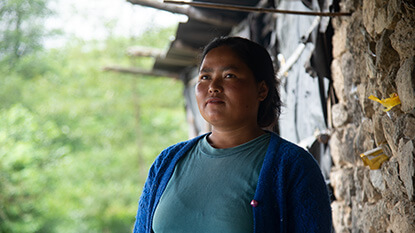
I have kept myself busy. I gave birth to another son. I raise poultry and swine and I also cultivate vegetables. I had to stop all that during COVID, but now I have resumed it. I am actively involved in my community’s activities. Recently, I took part in the training given by ICIMOD (International Centre for Integrated Mountain Development) on preserving water so as to learn new things. Now we visit the water sources at regular intervals to clean them. The community is aware that if we stop these activities, we would be back to those days when we faced acute shortage of water.
Two years ago, everything had dried up. It was because the water-supply system was not managed well and the sources were not taken care of. Our crops were also being affected by climate change. Cabbages and spinaches were knotting up and wilting. Moreover, during a time of heavy rain and landslide, the crops and the land took a heavy hit.
What I learnt from the training programme is that it’s not only about learning, it’s also about sharing that learning. I tell my friends who visit me about how we have been able to maintain regular water supply in our community.
You see, almost everyone in our community is dependent on vegetable farming for our livelihood. We mostly grow corn, cauliflower, potato, cabbage, beans, radish, spinach, and pumpkin. And since the people we trade with live nearby, we get our produce to the market on time. All this has helped me in managing household expenses and educating my son.
